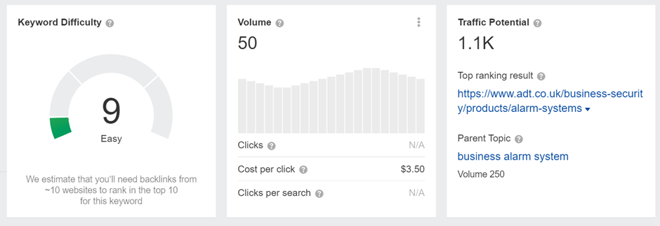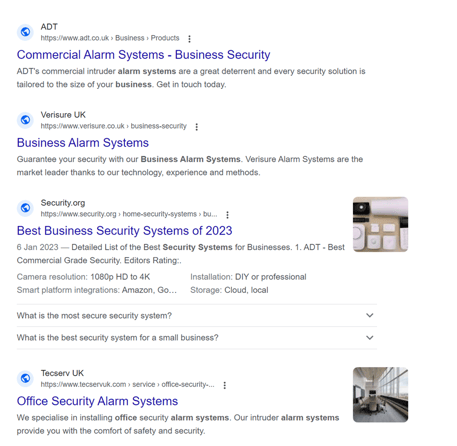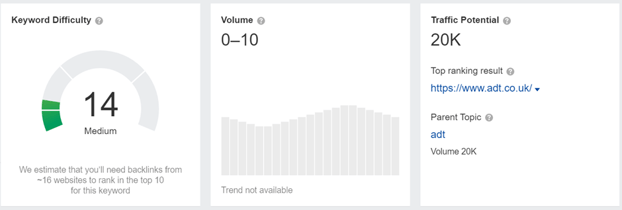
Creating an effective SEO content strategy can seem daunting for anyone unfamiliar with the intricacies of search engine optimization. However, having a planned and organized approach to your content marketing efforts can be incredibly rewarding in the long run.
Having a robust SEO content strategy helps boost organic visibility, attract more website visitors and drive conversions. Knowing how to create a successful SEO content plan is key to generating leads and expanding your customer base. In this blog post, we'll look at why it's important to have an effective SEO content strategy and provide best practices for creating one that will increase search engine rankings and generate engagement with your target audience. Get ready - let's dive into everything there is to know about crafting a powerful SEO-driven content plan!
Define Your Audience
Knowing who your target audience is and what they’re looking for in your content is an incredibly important part of your SEO content strategy. Looking back at your value proposition will give you a key theme to thread throughout everything you create. The value proposition should answer the questions, "who are we serving?" and "why are we the best fit to service them?" You can make this specific for each product/service offering as well as having a wider business proposition.
It's also important to consider the specific segment of your audience for this content strategy. Your content needs to fit your current business goals so draw upon this for inspiration, are you launching a new product or service? Trying to kickstart a dwindling offering? Or looking to start with your most essential product range? Either way, this must lead the SEO strategy, not the other way around. So define which job roles will be engaging with your content and what problem they are trying to solve.
You must define your audience, so you can create content that fits their specific needs, interests, and preferences. When you have a good grasp on the types of people you’re writing for, it can help identify the subject matter and keywords that have the most "business potential".
Write down around 10 keyword ideas you have based on the topic/product/service that you want to rank for. Then use the following steps to find the best way to rank for these keywords and which ones to prioritise.
Determine a Keyword’s Business Potential
The business potential of a topic or keyword is defined by how relevant and valuable a keyword is to your business, for this content campaign. I'd recommend using a 1-5 or 1-3 scale system to rank the business potential of your keyword ideas.
The biggest factor to determine business potential is intent. Here's an example of this; if your business sells security systems to large office spaces then you may consider the short-tail (and very broad) term security systems.
But this going to be incredibly difficult to rank for due to a high KD (keyword difficulty) and a quick scan of the SERP (search engine results page) shows the results are for home security which is irrelevant to your business goals so this term gets a score of 2/5.


You may then add, office to try and increase the intent behind the search.


Straightaway you can see the KD has plummeted making this an easier word to rank for. Search Volume has dropped but the SERP shows all the results are companies offering a similar product. So the intent behind the search goes up giving this keyword a 4/5.
But how do we find a 5/5 business potential keyword?
The 4/5 keyword scores highly because it is the product we are trying to sell; so we want to appear when potential leads search for it. But it tells us nothing about where they are in the buyer's journey, why they are searching for the term or the specifics of what they want. Amend this keyword to illuminate one of these things.
I searched the term office security system suppliers. This indicates they are in the decision stage of the buyer's journey and are searching for a provider. boosting the intent behind the search and the metrics from Ahref's and SERP show me that this is a 5/5 business potential keyword.


Calculate A Keyword’s Ranking Potential
The ranking potential of a keyword is a metric that helps you determine how likely is it that with your current website, budget and time that you can start ranking on page 1 for any given keyword. I would again recommend using a scoring system to determine this because a few different factors go into ranking potential.
The first is the strength of your website. How authoritative is your site in the eyes of Google? Do you have lots of backlinks from high-quality sites? Is your site healthy and quick to load? If the competition for this keyword is bigger and stronger than you then it may be worth sitting this one out and putting your resource elsewhere. Keyword Difficulty for a keyword gives an indication of the strength of the pages already ranking for this keyword. You can find this metric on Ahrefs.
Next is to look at the SERP, what type of content appears when you search for your potential keyword? Look at the type of content such as blogs, guides, videos, product pages etc. Look at the format of the content are they; how-to’s, tools, reports, and tech files.
Ask yourself if you have the resource to create something better than what already exists. If this is a no, then consider if you can create something that offers a new perspective on what already exists.
A low KD blog post from a competitor may be easy to compete with but a high KD data report from a reputable independent source may be beyond the scope of this task.
Record A Keyword’s Search Volume
A simple way of doing this requires no calculation and is simply taking a look at how much search volume your keyword gets. Look at monthly volume to keep your analysis consistent. You could look at your Google Search Console or other free tools to find this number. If you have access to Ahref’s then instead of looking at volume, I recommend using Traffic Potential. This is an estimate of all the traffic the page ranking in position 1 gets for the keyword. This takes into account related and matching keywords because if you rank for a keyword you are likely to be ranking for a lot of variations and modifications of it as well. I like to think of this number as the reward for ranking position 1. In the building products and construction industry, the number here may be low but compare this figure in-relation to the other keywords that you search and you’ll quickly spot high-traffic potential keywords for your niche.
Compare Your Keywords
Now you’ve completed this exercise for your 10 original keyword ideas, you will very quickly be able to see which ones have the potential to be the basis for blogs and web content. If a keyword has business potential, ranking potential and traffic potential then you’re on to a winner. Repeat the process until you have at least 1 keyword for each blog title you plan to write.
The next step is to use on-page SEO best practices to strategically place these keywords in your blogs and web copy. Your research may have highlighted keywords that can be grouped to form a stronger blog post or you might have discovered new content ideas that didn’t cross your mind in the first place.
If you’d like advice on how to build an effective SEO content strategy on a specific topic please get in touch and we will support you to start appearing on page 1 for the terms your potential customers are searching for.
About Insynth
At Insynth, we deliver a predictable flow of leads, customers, and specifications for building product brands through our inbound marketing approach, proven to reach a technically demanding audience.
We use the latest marketing techniques such as construction inbound marketing, to equip building product companies to grow sustainability in this era of digital transformation.
As the only HubSpot certified agency to major in construction marketing. We have a proven formula of bringing a variety of functionalities together including CRM Implementation, Web Design, Sales Automation, SEO, and Email Marketing to achieve your ultimate aim: Growing your business and gaining new specifiers and customers.

